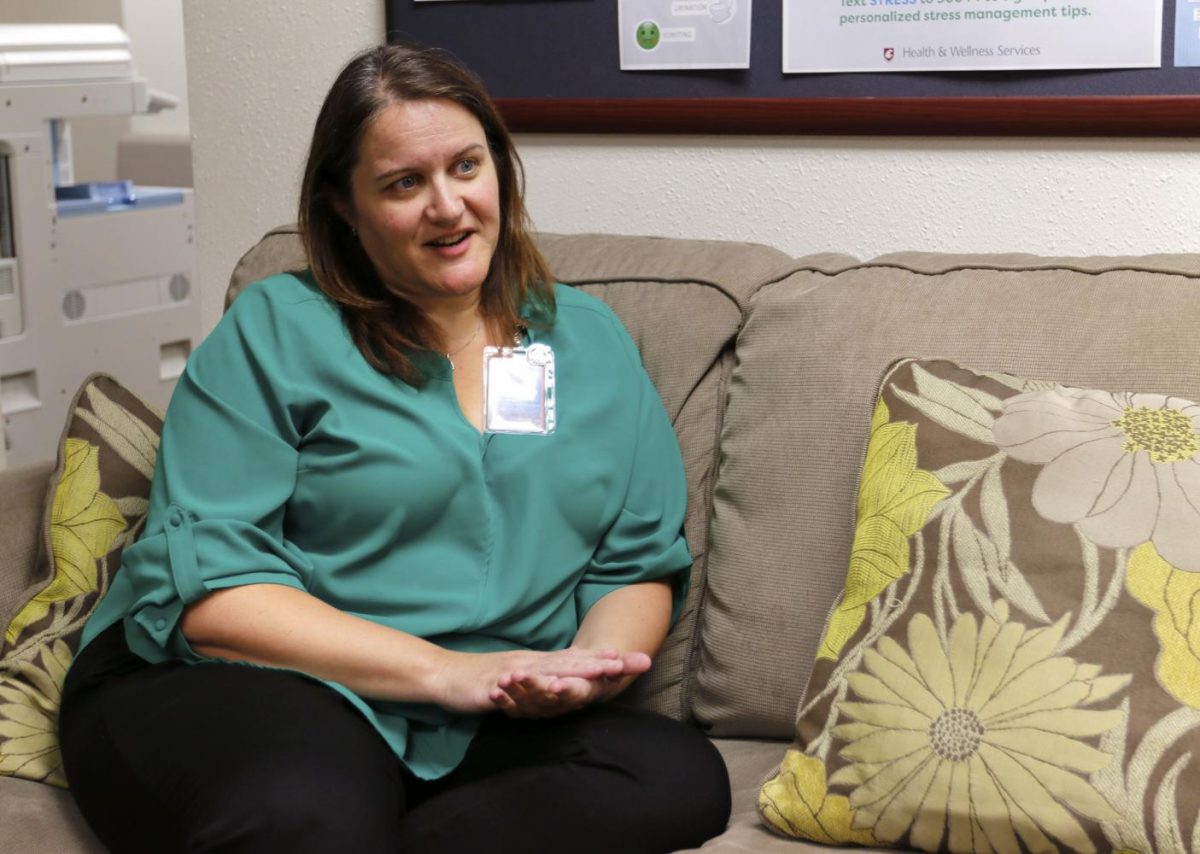Grant ends for safety orientation
Grant funded Health and Wellness programs, ATVP campus advocate
Ezekiel Nelson | The Daily Evergreen
WSU Associate Director of Health Promotions Paula Adams discusses the ATVP grant and its reapplication process.
September 26, 2017
Health and Wellness Services and Alternatives to Violence on the Palouse will take over funding for programs and campus resources previously covered by a Department of Justice grant.
The grant that supported the collaboration between the organizations will expire at the end of September.
Paula Adams, associate director of health promotions at Health and Wellness Services, said they will continue to work closely with ATVP on campus despite the upcoming expiration.
“There was a transitional time where [we] weren’t sure where the continued funding was coming from, that has since been decided,” Adams said.
Health and Wellness received the first installment of the $100,000- per-year Reduce Domestic Violence, Dating Violence, Sexual Assault, and Stalking on Campus Program grant in 2011 from the Department of Justice’s Office on Violence Against Women.
Adams said new programs were created as a part of the grant’s requirements. Before the grant, WSU did not have a violence extension program coordinator, mandatory education like Green Dot, new student orientation safety sessions, or a knowledge base for sexual assault and domestic violence, she said.
ATVP will continue to have a campus office even though the campus advocate program is separate from Health and Wellness programs, Adams said. It will be relocated to the third floor of the Washington Building to allow for more privacy.
ATVP Executive Director Christine Wall said the relationship between HWS and ATVP has always been strong and they will continue their presence on campus.
“[With the grant], we strengthened our relationship with ATVP and began directing some of the grant funds to ATVP as key collaborators in moving the grant activities forward,” Adams said.
Adams said ATVP made services available to the Pullman community and WSU students long before WSU received the grant.
She said the grant provided $100,000 each year, beginning in fall 2011. The first cycle of the grant is for three years, she said, a total of $300,000, to focus on the basics of building a foundation.
According to the DOJ, some areas the grant focused on included mandatory education for all incoming students, creating a coordinated community response team and mandatory training for campus law enforcement and student conduct staff.
Institutions are eligible to reapply for the grant two times, each for three years with $100,000 of funding each year. After this, a break is required before an institution may reapply again, Adams said.
As the Pullman campus underwent recent changes in institutional leadership, Adams explained, the Spokane campus applied for the final continuation cycle of the grant.
“The [Pullman] campus won’t receive the grant funds,” she said, “but Spokane will. In order for [Spokane] to get [the continuation] we must continue maintaining programs and services here.”





















